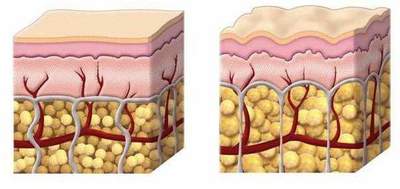The main thing - to be protected: 7 Myths About STDs

What a way to protect the most reliable, if not to notice that you have a genital infection can be, and why even a regular inspection at the gynecologist does not guarantee safety. To understand the popular myths about infections, sexually transmitted diseases.
1. If you have an STD appears, did you notice
The fact that you do not bother, do not mean that you can not have a sexual infection. the disease is often asymptomatic, such as the case with chlamydia. Only after a long time the infection will make itself felt, and in the complicated form - will lead to pelvic inflammatory disease, ectopic pregnancy or infertility.
You want to be sure that your sex is safe - be tested regularly with a partner.
2. Condom enough to not get sick

To date, the condom - is the optimum means of protection, but not a 100%.
Foci of infection may be in the area of the body not covered by the condom. In addition, the latex membrane is easily damaged. You can also become infected through a common sex toy.
Remember that oral sex also need to be protected, if you do not have accurate information about whether you or your partner's health.
3. Any lubricant can be used with a condom
Choosing the right personal lubricant - not just a question of your comfort during sex, but also security. Not all tools can be used with condoms. For instance, for a latex are not suitable lubrication and lotions, which have oil: because they can damage the condom. Carefully read means intimate composition before use.
4. All but HIV can be easily cured with antibiotics

Fortunately, the days when people massively died from syphilis, passed it, and many other sexually transmitted diseases can be cured by a course of antibiotics. But that is no reason to stop being afraid of genital infections. Many of them are the same gonorrhea and chlamydia can damage the fallopian tubes and problems with conceiving a child in the future.
Since STDs often are not detected at an early stage, sometimes treatment does not eliminate the damage that has already been done to the body. In addition, there are infections that require lifelong antiviral treatment, such as herpes or genital warts.
5. Regular checkups at the doctor guarantee the absence of STDs
Gynecologists often make a conclusion about the sexual life and intimate health, focusing on the age and relationship status. Standard inspection does not guarantee that you're all right (remember that many STIs are asymptomatic).
If you think that is exposed to, for example, recently you've had unprotected sex with a new person or you are not sure of its permanent partners, the very best to ask the doctor to give a direction on the analysis, rather than wait for what you offer it.
6. You can use male and female condoms with

We have already talked in detail about what female condoms. They are used mainly to protect against infection during cunnilingus. But for those who are particularly concerned about security can come to the idea of double protection when having sex with penetration: cycling and male and female condom. Doing this definitely is not worth it - because you on the other hand increase the risk of damage latex and reduce the effectiveness of contraceptives.
7. Your sex life will deteriorate due to the diagnosis of STD
The stigma associated with the diagnosis of sexually transmitted diseases, often themselves worse symptoms. Genital infections are associated with sexual promiscuity and immorality, but in fact you can get them from a single contact in life, and not necessarily sexual.
Do not be afraid to discuss with a partner for your safety and the most to offer to be tested, even just for prevention.
So we should not hide from your partner's diagnosis, to be open - so take care.
If faced with a sexual infection, do not blame yourself, and immediately begin treatment, talk with everyone at risk, and to change their sexual habits to continue this happens again.
Talk about STDs can be unpleasant, but ultimately creates a safe space for discussion and other important sexual topics: consent, borders and so on.
What other myths do you know about STDs?













































